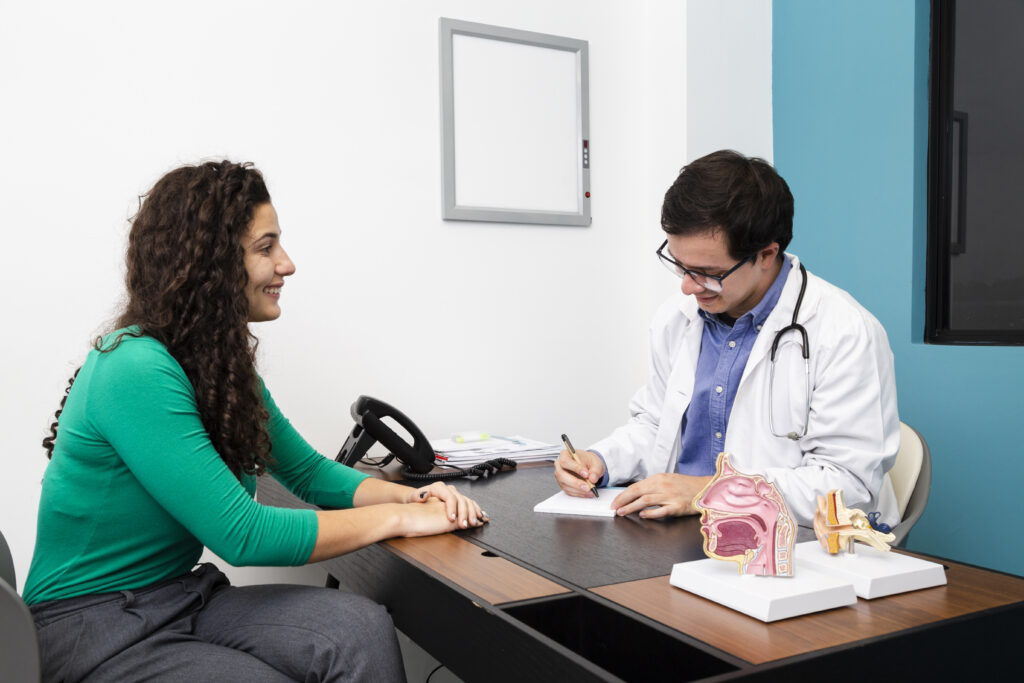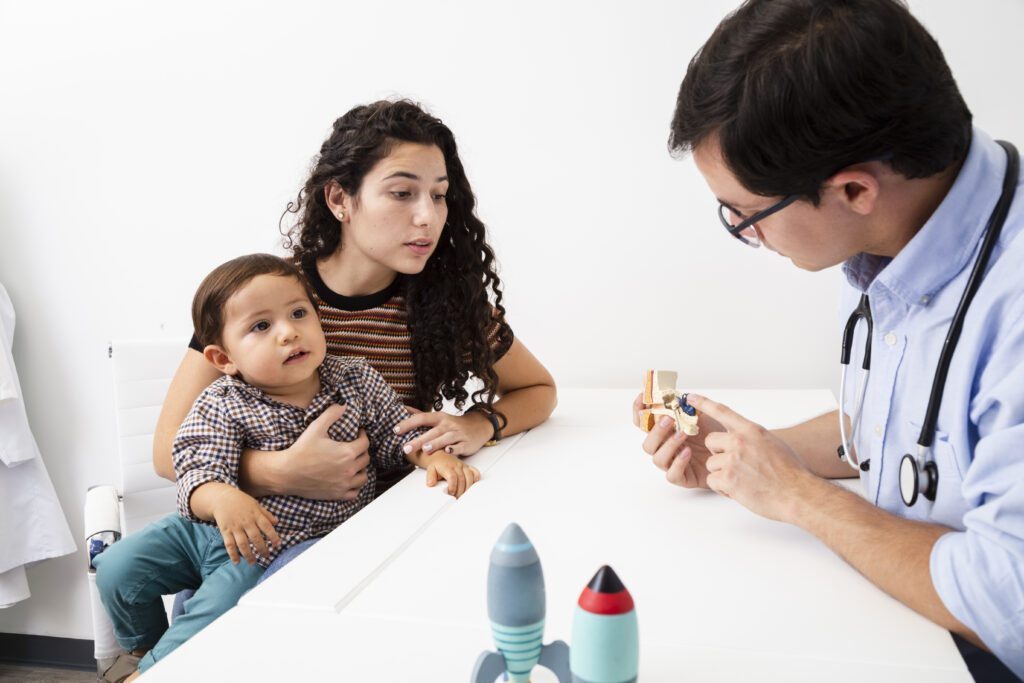
Introduction to DOE Health Screening
Welcome to the world of DOE Health Screening – your passport to a healthier and happier life! In this fast-paced and demanding world, it’s easy for our health to take a backseat. We often neglect those warning signs that our bodies present until they escalate into something more serious. But fear not! Regular health screenings can be your secret weapon in staying on top of your well-being.
We all know that prevention is better than cure, and that’s exactly what health screenings offer – an opportunity to catch potential issues before they become major problems. By taking charge of your health through regular check-ups, you can identify risk factors early on and make informed decisions about lifestyle changes or necessary treatments.
Are you ready to dive deeper into the world of DOE Health Screenings? Let’s explore the benefits, types offered, preparation tips, understanding test results, importance of follow-up care, and much more. So grab a cup of tea (or coffee!) and let’s get started on this journey towards optimal health!
The Benefits of Regular Health Screenings

Regular health screenings are an essential part of maintaining overall well-being. By undergoing these tests on a routine basis, individuals can catch potential health issues early and take proactive steps towards prevention or treatment. The benefits of regular health screenings are numerous and can have a significant impact on one’s quality of life.
Regular health screenings allow for the early detection of diseases such as cancer, heart disease, diabetes, and high blood pressure. Detecting these conditions in their initial stages increases the chances of successful treatment and improves outcomes. Early intervention can also help prevent further complications that may arise if left untreated.
Furthermore, routine health screenings provide valuable insight into one’s overall state of health. These tests may include measurements like cholesterol levels, body mass index (BMI), and blood sugar levels. By monitoring these markers regularly, individuals can make necessary lifestyle changes to improve their overall well-being.
In addition to detecting potential problems, regular health screenings promote preventive care by empowering individuals with knowledge about their own bodies. Armed with this information, they can make educated decisions regarding diet choices, exercise regimens, stress management techniques, and other factors that contribute to long-term wellness.
Moreover
Types of Health Screenings Offered by DOE
Types of Health Screenings Offered by DOE
The Department of Education (DOE) understands the importance of preventative healthcare. That’s why they offer a range of health screenings to ensure that employees can stay on top of their well-being and catch potential issues early on.
One type of screening offered is blood pressure monitoring. High blood pressure can lead to serious health problems, such as heart disease and stroke. By regularly checking your blood pressure, you can take steps to manage it effectively.
Another important screening provided by DOE is cholesterol testing. Elevated levels of cholesterol can increase the risk of heart disease and other cardiovascular conditions. Regular cholesterol screenings allow individuals to monitor their levels and make lifestyle changes if needed.
In addition, DOE offers diabetes screenings for those at risk or with a family history of the condition. Early detection and management are key in preventing complications associated with diabetes.
Furthermore, cancer screenings play a significant role in detecting cancer early when treatment options are most effective. The DOE provides various types of cancer screenings, including mammograms for breast cancer and colonoscopies for colorectal cancer.
Vision and hearing tests are also available through the DOE’s health screening program. These tests help identify any potential issues with eyesight or hearing impairment that may require further evaluation or intervention.
By offering these diverse types of health screenings, the DOE aims to support employee wellness while promoting preventive care within its workforce.
How to Prepare for a DOE Health Screening

How to Prepare for a DOE Health Screening
Preparing for a DOE health screening is essential to ensure accurate and reliable results. Here are some steps you can take to get ready:
1. Review the instructions: Before your screening, carefully read any materials or instructions provided by the Department of Education (DOE). This will help you understand what tests will be conducted and any specific requirements.
2. Follow fasting guidelines: For certain screenings like blood glucose or cholesterol tests, fasting may be required. Typically, this means avoiding food and drink (except water) for 8-12 hours before the test. Be sure to adhere to these guidelines for accurate results.
3. Stay hydrated: While fasting is necessary for some tests, it’s important to stay well-hydrated leading up to your screening appointment. Drinking plenty of water can help improve blood flow and make sample collection easier.
4. Take medications as prescribed: If you’re currently taking any medications, continue following your prescribed dosage unless instructed otherwise by your healthcare provider or testing facility.
5. Wear comfortable clothing: Dress in loose-fitting clothes that allow easy access to areas where samples may need to be collected or measurements taken.
By following these simple steps, you’ll be well-prepared for your DOE health screening and increase the chances of obtaining accurate results that can contribute positively towards maintaining good overall health.
Understanding Your Test Results
Understanding Your Test Results
Once you have completed your health screening with the DOE, it’s important to understand and interpret your test results. This will help you gain valuable insights into your overall health and identify any potential areas of concern.
When you receive your test results, take the time to review them carefully. Look for any abnormalities or values that fall outside the normal range. It’s important to remember that not all abnormal results indicate a serious health issue, but they may warrant further investigation.
If you come across any unfamiliar terms or abbreviations in your test results, don’t hesitate to reach out to your healthcare provider for clarification. They can provide additional context and explain what each result means for your specific situation.
In some cases, further testing may be recommended based on certain findings from your initial screening. This could involve additional blood tests, imaging studies, or consultations with specialists. It’s crucial to follow through with these recommendations as they can provide a more comprehensive understanding of your health status.
Don’t forget the importance of discussing your test results with your healthcare provider during a follow-up appointment. They can address any concerns or questions you may have and guide you towards appropriate next steps if needed.
Remember that understanding and staying informed about your test results is an essential part of taking control of your own health journey.
Importance of Follow-Up Care
Importance of Follow-Up Care
After undergoing a health screening, it’s crucial not to overlook the importance of follow-up care. This step is often overlooked or underestimated, but it plays a vital role in maintaining your overall well-being.
Follow-up care allows healthcare professionals to monitor any underlying conditions that may have been detected during the screening process. It provides an opportunity for early intervention and treatment if necessary, preventing potential complications down the line.
Regular check-ups and continued monitoring are particularly essential for individuals with chronic diseases or those at higher risk for certain health conditions. By staying engaged in follow-up care, you can work together with your healthcare team to manage your health effectively and make informed decisions about lifestyle changes or further treatment options. Doe Health Screening
Moreover, follow-up care also offers an opportunity to discuss any concerns or questions you may have regarding your test results. Your healthcare provider can provide additional information and guidance tailored specifically to your needs and help address any uncertainties you might have.
Remember that taking proactive steps towards managing your health doesn’t stop after completing a health screening—it’s an ongoing process that requires active participation from both you and your medical team. So don’t hesitate to schedule those follow-up appointments; they could make all the difference in maintaining optimal wellness. Doe Health Screening
Stay tuned for our next blog post where we will dive deeper into various types of DOE Health Screenings offered!
Conclusion
Conclusion
Regular health screenings are an essential part of maintaining your overall well-being. By undergoing DOE Health Screening, you can ensure early detection and prevention of various medical conditions that could otherwise go unnoticed. These screenings offer a comprehensive assessment of your health, covering a wide range of tests tailored to your specific needs.
The benefits of regular health screenings cannot be overstated. They provide valuable insights into your current health status and enable healthcare professionals to identify any potential issues before they become major concerns. Early detection allows for prompt intervention, increasing the chances of successful treatment and improving long-term outcomes. Doe Health Screening
DOE offers a variety of health screenings that cater to different age groups and risk factors. Whether it’s cardiac screening, cancer screening, or diabetes screening, their comprehensive approach ensures thorough evaluation across multiple aspects of your health.
To make the most out of your DOE Health Screening experience, it’s crucial to come prepared. Follow any pre-screening instructions provided by the healthcare facility, such as fasting requirements or medication restrictions. This will help ensure accurate test results and avoid any potential complications during the process. Doe Health Screening
Once you receive your test results from the DOE Health Screening, take time to understand them fully. Consult with a healthcare professional who can explain what each result means for your overall health and address any concerns you may have. Doe Health Screening
Remember that receiving follow-up care is just as important as undergoing the initial screening itself. If further diagnostic tests or treatments are recommended based on your results, don’t hesitate to seek appropriate medical attention promptly. Doe Health Screening
In conclusion (without using those words), prioritizing regular DOE Health Screenings is an investment in yourself – one that promotes early detection and prevention while empowering you to take control over your own well-being. By staying proactive about monitoring our health ,daily health screening ,health minute for colon cancer, mental health ,women’s health ,health care (industry),health ,health care (issue),apple health, health literacy, mount sinai health system health attestation ,national institutes of health (government agency),healthcare, cardiovascular death, unhealthy, unhealthy food ,learning video, smart learning, ground breaking, online learning through routine checks offered by organizations like DOE (Department Of Education?), we can stay ahead in our quest for optimal wellness